This site contains affiliate links. Please see Policies for more information.
One of the big questions I am asked a lot is “what are the healthy oils?” There is a lot of information available about processed oils, also called seed oils, and I understand that it can be overwhelming to read about saturated fat and unsaturated fats, polyunsaturated fats, monounsaturated fats… My goal here is to simplify this for you.
You may or may not know by now that I have earned my nutrition certification and the program I’m in is so crazy informative. There have been so many ‘ah ha’ moments for me so far and I’m excited to be able to share that knowledge with you! We can start living healthier lives now that we know better.
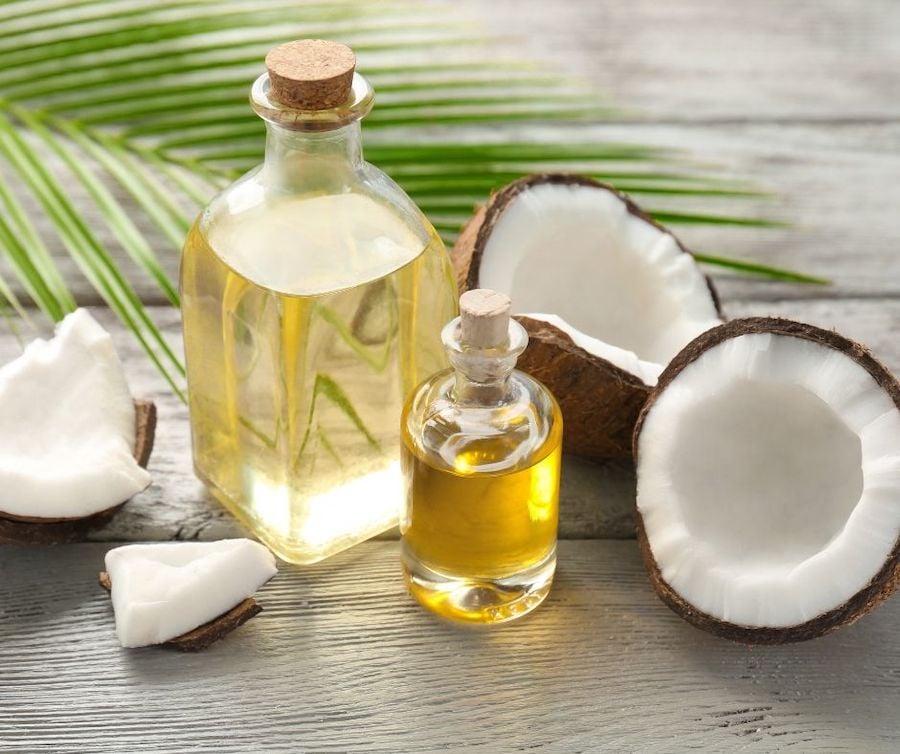
I also want to note that some of the suggestions here are different than what you’ll find at say, the American Heart Association. I can’t give you a reason why this is, but I do know that I prefer to do my own research about what my family eats.
What are the different kinds of oils available today?
There are a TON of different cooking oils on the market today. Here are the main ones that we’re going to talk about:
- Canola
- Olive
- Coconut
- Vegetable
- Sunflower
- Palm
One oil that is really popular and has gotten a lot of attention lately is palm oil (quick note: this is different than palm kernal oil). It’s cheap, but the environmental impact is significant and it’s not your healthiest choice.
Palm Oil
Palm oil is used in many prepackaged foods, including most “stir free” peanut butters. It’s a stabilizer used to prevent the oil from separating from the peanut butter. Palm oil is also used to produce biodiesel fuel–an alternative energy source.
Palm oil is very high in saturated fat (palm oil itself is 100% fat, with 7 grams of saturated fat) and because of the processing has a high smoke point. For one tablespoon (14 grams) of palm oil, the nutrition facts are:
- 114 calories
- 14 grams of fat
- 7 grams of saturated fat
How do we get oil from vegetables and nuts?
Pressed vs Processed Oils
There are a few different methods of processing ingredients into oil. The quick and easy answer to this question is that some are processed and some are pressed. Pressed oils are less processed because the method of obtaining the oil is simple, the raw ingredients are pressed until the oil comes out and it is then collected and put to use.
In the case of oils such as vegetable, canola (basically another name for vegetable oil), and sunflower, heat and other more aggressive methods are applied to extract the oils. This is what makes them highly processed.
It’s cheaper to process oils with heat, which destroys a lot of the nutritional content. In many cases bleaches, solvents, deodorizers, and recoloring methods are also used while extracting the oil.
Why does this matter?
There’s an awesome article on healthline about why vegetable oils are often mislabeled. As consumers we’re programed to read labels and processed oils are sometimes labeled as ‘heart healthy’ and ‘smart choices’. This is one more reason why I like to do my own research about what foods I bring into my home.
More highly processed oils
Not only does processing make these oils more unhealthy but it creates a product that is so far removed from the original ingredients that we can’t really consider it the same. Because these methods of processing and extracting oils are cheaper, manufacturers are creating a product that is more readily used in processed foods.
Here are a few facts about other highly processed oils, and what makes them that way:
Want to Save This?
Canola Oil: Canola oil used to be considered healthy. It’s created by crossbreeding (most canola is genetically modified) and is also used as a fuel alternative and plasticizer. It’s pressed and then solvents are used to extract the seed flakes, then it’s desolventized by steaming, and finally the oil is processed.
Sunflower Oil and Vegetable Oil: Seed and vegetable oils are highly processed and contain a very high amount of trans fats. They’ve been touted as heart healthy for years, but as we learn more about how they’re processed, many of the same people are stepping away from them. As we learn more, we do better, right?
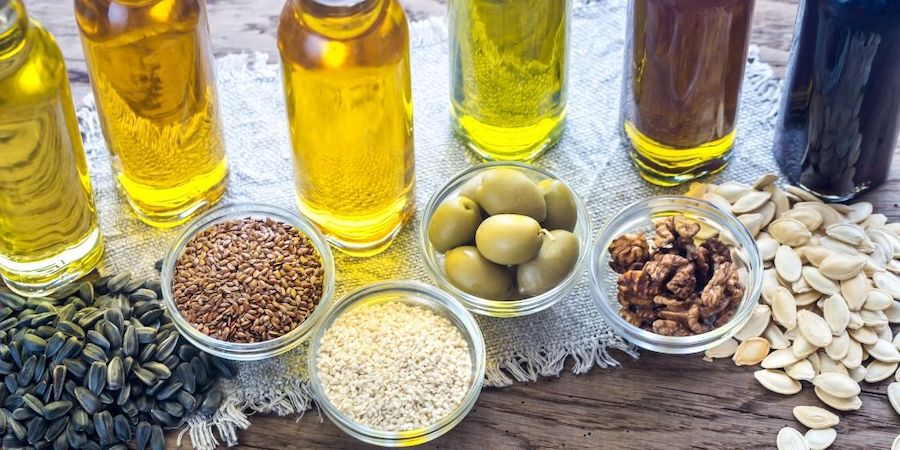
Are there healthy oils?
There are healthy oils out there, and actually, we need a certain amount of fats and oils in our diet for our body to function properly. These days it seems like there is a type of oil for every plant and vegetable on the market. Everything from peanut oil to walnut oil and even avocado oil and sesame oil.
Different oils have different flavors and cooking temperatures and occasionally we use them for that purpose without even thinking about their health impact.
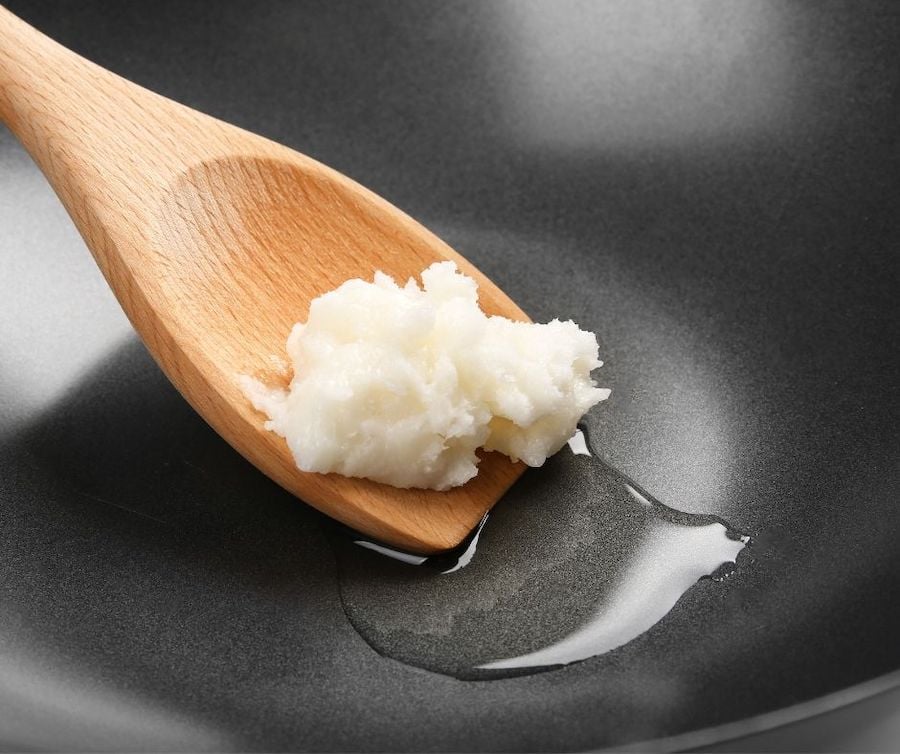
What kinds of healthy oils should we be using?
The best questions we can ask are which oils are healthy and what extraction methods are we okay with? Personally, I believe that unrefined and cold pressed oils are the best choices. They’re not heated, so these oils come packed with the full benefit of their nutrients, minerals, etc.
Another reason these unrefined oils are a better choice is because they’re not subjected to chemical processing. We can be sure of the ingredients and there’s less chance of trace amounts of chemicals from any refining process that might take place.
There are unrefined and cold pressed oils available in a variety of types. Coconut oil and olive oil are two of the big ones that are typically processed using these methods and are both healthy oil choices. It is important to check the label and make sure that you are getting something as minimally processed as possible.
Precision Nutrition’s All About Plant Oils is a great resource if you want more information on this topic. It’s been one of the most interesting aspects of the course I’m taking. Implementing these small changes can have a big effect on our overall health!
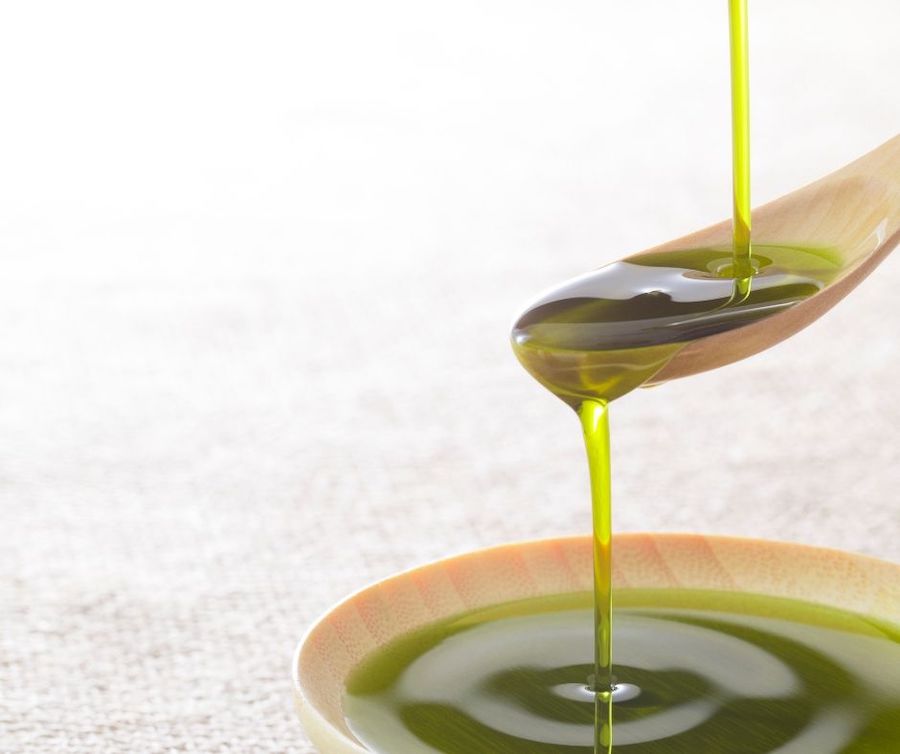
How do I know if an oil is processed in a healthy way?
There are a few key phrases you can look for that make the buying process easier. It’s important to do a little research so that you know what to look for, what you are getting, and why the difference matters! Whether you’re deep frying, sautéing, or making a salad dressing, these are the buzz words to look for.
Look for:
- Virgin or Extra Virgin
- Cold Pressed Oils
- Liquid Oils (especially in the case of Coconut Oil)
- Fresh oils and oils that need to be refrigerated
It is important to remember that canola oil and other unhealthy oils are often used in other products. You probably won’t be using these oils to cook, but you’ll want to look out for them in your prepackaged foods. Salad dressings and coffee creamers are most likely to have canola oil, for example.
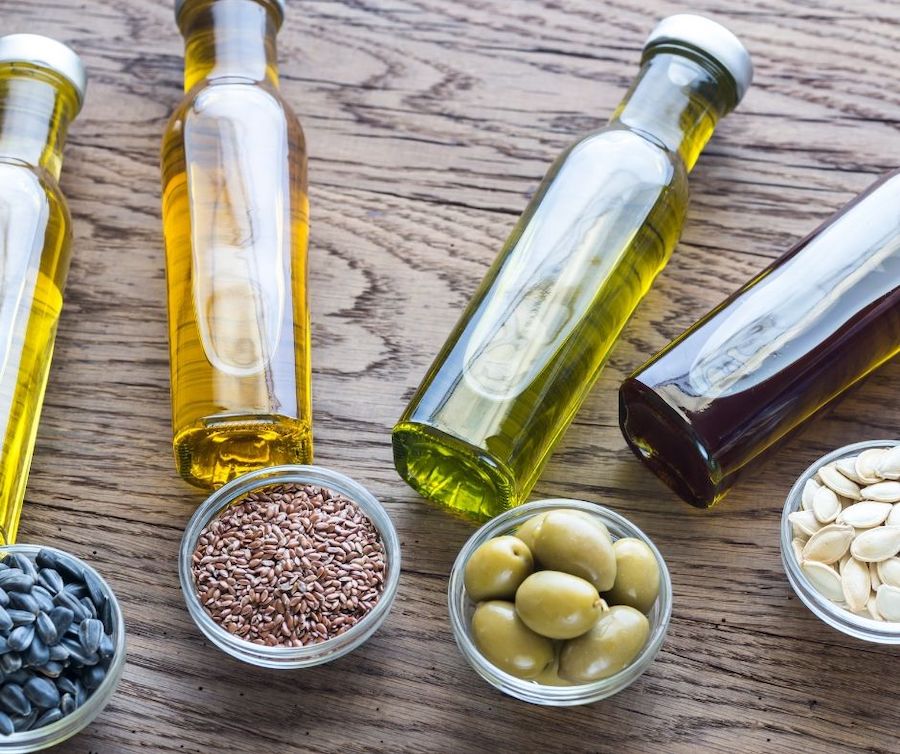
What is the healthiest option for getting the healthy fats we need in our diet?
The best way to get the omega-3 fatty acids our body needs is through whole food sources. While extra virgin coconut and olive oil are great options comparatively, the best choice would be to get those nutrients from actual olives and coconuts.
We need some oils for cooking, baking, etc. and that is understandable. When eaten in moderation cold pressed, extra virgin olive oil and coconut oils are the least refined and best choices.
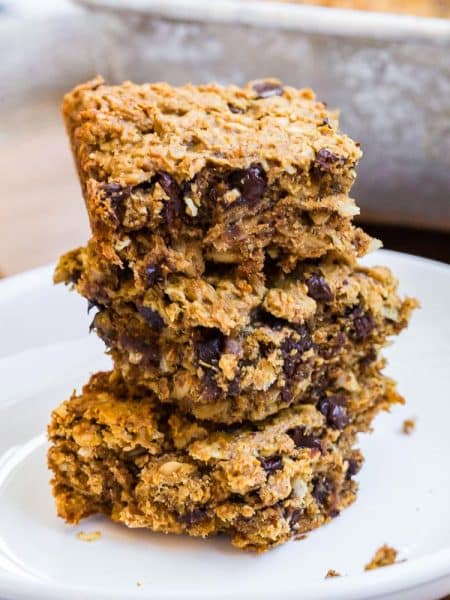
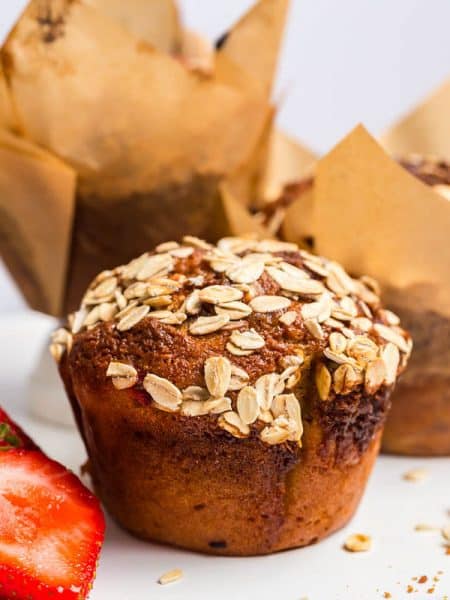
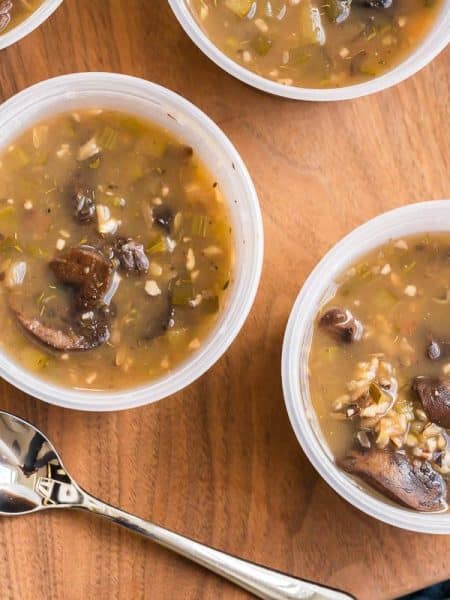
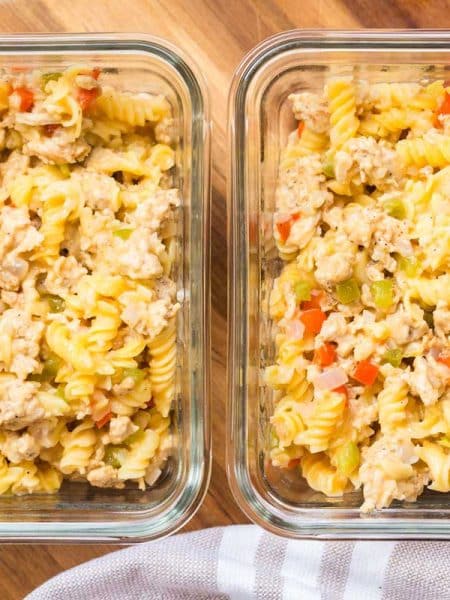











Hello Becca,
thanks for this fantastic article about healthy oils. Now I got a better idea about oils like Canola, Olive, Coconut, Vegetable, Sunflower, Palm Oil etc.
Thanks for all of your work. Should olive oil and cocoanut oil be kept in the refrigerator?
Nope! They’re both fine to store in a cool pantry :)